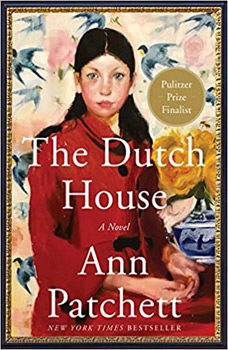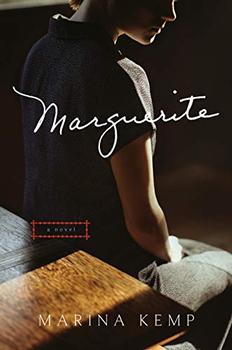Summary | Excerpt | Reading Guide | Reviews | Beyond the book | Read-Alikes | Genres & Themes | Author Bio

Lorna has finally found the love of her life. Her relationship with Jon has always been easy and exciting at the same time, and she can imagine spending the rest of her life with him. But, like many engaged couples, the very process of planning a wedding may prove to be the biggest test their relationship has yet faced. Lorna, who recently and unexpectedly lost her mother, finds herself inexplicably (and, in Jon's mind, irrationally) drawn to a crumbling old mansion on the Cornish coast called Pencraw Hall on the wedding website, but known to all the locals as Black Rabbit Hall. Lorna is convinced that this is the same mansion she and her mother visited together when Lorna was a child, and despite Jon pointing out the house's many leaks, crumbling plaster, and overgrown gardens, Lorna is enchanted by its romantic ambience, its beauty, and, most importantly, the fact that she feels a mysterious emotional connection to the place.
Lorna's contemporary story, during which she grows increasingly entangled with the house's elderly owner and its skittish caretaker, alternates with an account of tragedy and betrayal that unfolded at Black Rabbit Hall more than thirty years earlier. Fifteen-year-old Amber Alton has always been as close as can be to her twin brother Toby. The two of them adore their much younger siblings, as well as their vivacious American mother. Their mother, in turn, adores Black Rabbit Hall, the family's wild country retreat from their more staid London existence. But during the Easter holidays in 1969, tragedy strikes the family and sets into motion a series of events that will leave all the members of the family deeply changed – and that may result in a cascade of additional misfortunes.
At first, the connection between the two stories – separated by several decades and connected only by this ramshackle old mansion – is unclear. And while it's likely that few readers will be entirely blindsided by the revelations that eventually disclose the threads tying the Alton family's harrowing past together with Lorna's more optimistic present, few will anticipate all the thorny turns that the narrative will take before its surprisingly upbeat conclusion.
Black Rabbit Hall is drawing a number of comparisons with the beloved novels of Daphne Du Maurier, not least because of their shared setting in Cornwall, but also because of a more generalized exploration of the links between a specific, evocative place and (often devastating) family history. Chase's novel rarely shifts setting from the confines of Black Rabbit Hall and its environs; when it does, the change is both jarring and a bit liberating, as if the reader can finally take a deep breath, away from the stifling and yet spellbinding atmosphere of this place.
![]() This review was originally published in The BookBrowse Review in April 2016, and has been updated for the
August 2017 edition.
Click here to go to this issue.
This review was originally published in The BookBrowse Review in April 2016, and has been updated for the
August 2017 edition.
Click here to go to this issue.

If you liked Black Rabbit Hall, try these:

by Ann Patchett
Published 2021
Ann Patchett, the New York Times bestselling author of Commonwealth and State of Wonder, returns with her most powerful novel to date: a richly moving story that explores the indelible bond between two siblings, the house of their childhood, and a past that will not let them go.

by Marina Kemp
Published 2020
In this haunting novel, a young nurse forms an unlikely connection with the elderly man she cares for, and finds herself confronting the guilt she carries from her past.
A few books well chosen, and well made use of, will be more profitable than a great confused Alexandrian library.
Click Here to find out who said this, as well as discovering other famous literary quotes!
Your guide toexceptional books
BookBrowse seeks out and recommends the best in contemporary fiction and nonfiction—books that not only engage and entertain but also deepen our understanding of ourselves and the world around us.